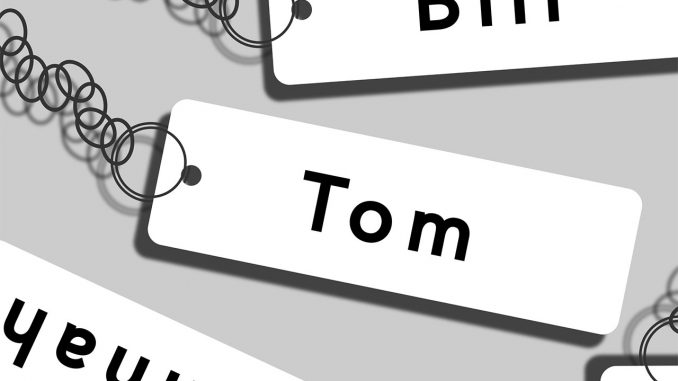
I have five things in common with a world-renowned Polish superstar: each letter of our first name.
Many people, like the optometrist who took down my name to book an exam in July, offer this tidbit of information when I introduce myself.
“Have you heard of that singer?” he asked. “She’s great!”
I find this commonality kind of impressive, even if the singer pronounces her name differently than I do mine. I don’t know of many other people who share my name. I have come across many Asias and Dasias, but no Basias — unless you count fictional characters.
I first saw my name in a book while reading the sequel of the “The Sisterhood of the Traveling Pants” by Ann Brashares. On her extended vacation in Greece, one of the story’s protagonists, Lena, gets a summer job at a clothing store called Basia’s Boutique.
I remember sitting on the floor of my mom’s apartment, reading my name in print, gasping, then rereading the sentence again. I was so excited, I bolted to show my mom immediately. I don’t know how Brashares intended for the name to be pronounced, but the voice inside my head narrating the story decided in my favor.
As a child on family vacations, I began to notice how my name was always absent from the seas of keychains and refrigerator magnets for Andy or Theresa or Hunter or Mia. I got used to this.
I also got used to flustering new or substitute teachers in elementary school. They’d perform roll call swimmingly, gliding down the list.
“Melissa? Victoria? Ryan? Shannon?”
I could always sense it coming, the way the teacher would suddenly pause, peer closer to the paper and say, “I know I’m going to mess this one up.”
I’m reminded of the poem “On Listening to Your Teacher Take Attendance” by Aimee Nezhukumatathil, a poet who is definitely familiar with this name game. She reflects on the quintessential childhood experience endured by any person with a unique name.
She writes, “Your teacher means well, / even if he butchers your name like // he has a bloody sausage casing stuck / between his teeth, handprints // on his white, sloppy apron.”
I would always cut the rookies some slack.
But there were some instances when I gave too much slack, like letting an instructor pronounce my name incorrectly for a whole school year when it became too late or embarrassing to correct them in front of my classmates. I would get tired of interrupting the lesson, drawing extra attention to myself and feeling my peers shift their eyes toward me.
I try not to let situations like that happen anymore, establishing the rules of pronunciation right away, or even beforehand if possible.
At a recent open mic event, I wrote my name along with the usual pronunciation tip — “rhymes with Asia” — to assist the host in saying my name properly. He shared his appreciation for this as he announced me. I saved both of us some embarrassment.
At this point though, I wouldn’t have been all that angry or frustrated if he got my name wrong. He would’ve meant well.
My mom meant well when she changed her mind about naming me Mikayla, after my dad and eldest brother, and named me Basia instead, a Hebrew name that translates to “daughter of God.”
And my classmates didn’t mean to be rude when the weight of their gazes shifted to me as I corrected teachers who botched my name.
I reflect back to Nezhukumatathil’s poem again. I admire how she reminds us of the human, harmless intentions of others, despite flaws.
“And when / all those necks start to crane, try not to forget // someone once lathered their bodies, once patted them / dry with a fluffy towel after a bath, set out their clothes // for the first day of school.”


Be the first to comment